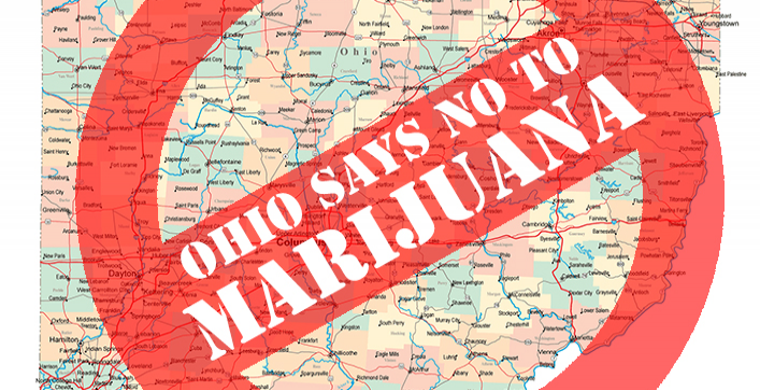"Going To Pot"
By Mike McManus
November 12, 2015
In their 2014 book, "Going To Pot," former Drug Czar William Bennett and Robert White report that according to Gallup Polls, nearly 60% of Americans support legalizing marijuana. However, they bravely assert at the end of Chapter 1, "We believe the momentum toward legalization of marijuana can be stopped."
Many folks in Ohio must have bought the book, because 65% of Ohioans rejected legalizing pot last week.
Hurray!
If you are concerned about America "going to pot," this is a must-buy book.
President Obama has a different opinion. In an interview published by The New Yorker, Obama asserted, "I don't think it is more dangerous than alcohol."
Perhaps he is remembering what marijuana was like when he was a student when the THC level (the psychoactive ingredient in pot) was about 3% to 5% THC. The average level today is above 13%. Bennett says that is like comparing a 12 ounce glass of beer with a 12 ounce glass of 80 proof vodka!
Dr. Robert DuPont, president of the Institute for Behavior and Health, asserts that although a user does not experience a hangover the way heavy alcohol users do -- marijuana's impact is far more serious:
"Marijuana makes its users lose their purpose and their will as well as their memory and motivation...They commonly just sink lower and lower in their performance and in their goals in life as their pot smoking continues. Their hopes and lives literally go up in marijuana smoke."
That's no exaggeration. It is important to understand why. Here's a headline from The New York Times: "Early Marijuana Use Linked to IQ Loss."
Its opening paragraph: "Cannabis users who start smoking the drug as adolescents show an irreparable decline in IQ, with more persistent use linked to a greater decline, new research shows." Or consider the last line of the story: "Cessation of cannabis did not restore IQ among teen-onset cannabis users."
By contrast, tobacco smokers can restore lung function years after quitting. However, brain damage due pot can be permanent.
Furthermore, teen marijuana use is also linked to school dropouts, experimenting with other more dangerous drugs like cocaine and various mental health problems. "Regular marijuana use stands to jeopardize a young person's chances of success -- in school and in life," asserts Dr. Nora Volkow, director of the National Institute of Drug Abuse.
Sadly, 90% of potheads began as adolescents. If a young person can abstain till age 21, "the chances one will ever have a substance abuse problem are near zero," the authors state.
Regular users are also "two to five times more likely to develop psychosis, schizophrenia, anxiety and depression in adulthood," according to Dr. Sion Kim Harris, research director at Boston Children's Hospital.
Yet in 2011 NIDA reported that 22.6% of U.S. high school seniors have used marijuana in the last 30 days. In Colorado, which legalized "medical marijuana" in 2000, 31.2% of seniors had used it.
Nearly half of the states have approved the sale of "medical marijuana." The implication is that a doctor's prescription is necessary to obtain it. "This is simply untrue. No doctor in America can actually prescribe marijuana," the authors write. It is not a medicine to be found in any pharmacy. The Food and Drug Administration has never approved a form of medicine that is lit up and inhaled.
State laws require a letter from a doctor or a card issued by a state based on a letter from a physician. I think it is malpractice. People walk into a clinic and claim they're anxious and can't sleep, and always get the card. In Arizona, 34,000 people had cards as of 2012. Only 3.7% used marijuana to ease symptoms of cancer and 1.5% for glaucoma and 1% for AIDS.
Virtually all others got cards for "severe and chronic pain," supposedly. However, it is really just for recreational use. In fact, 74% of teens in Colorado used someone else's card to buy pot, with a median frequency of 50 times.
Consider three facts. Unlike medicine, marijuana has no set or controlled dose or strength. That is up to dispensaries and growers, many of whom compete for business based on the THC potency of their pot!
Nationally, marijuana contributed to 3,000 traffic fatalities, and 12% of deaths in 2010. (To learn more visit DrugFreeWorld.org).
Medical marijuana has paved the way for four states, Colorado, Alaska, Washington and Oregon to approve it for recreational use. They have gone to pot
However, Ohio voters put their foot on the brakes. There is hope.
Michael J. McManus is President of Marriage Savers and a syndicated columnist














